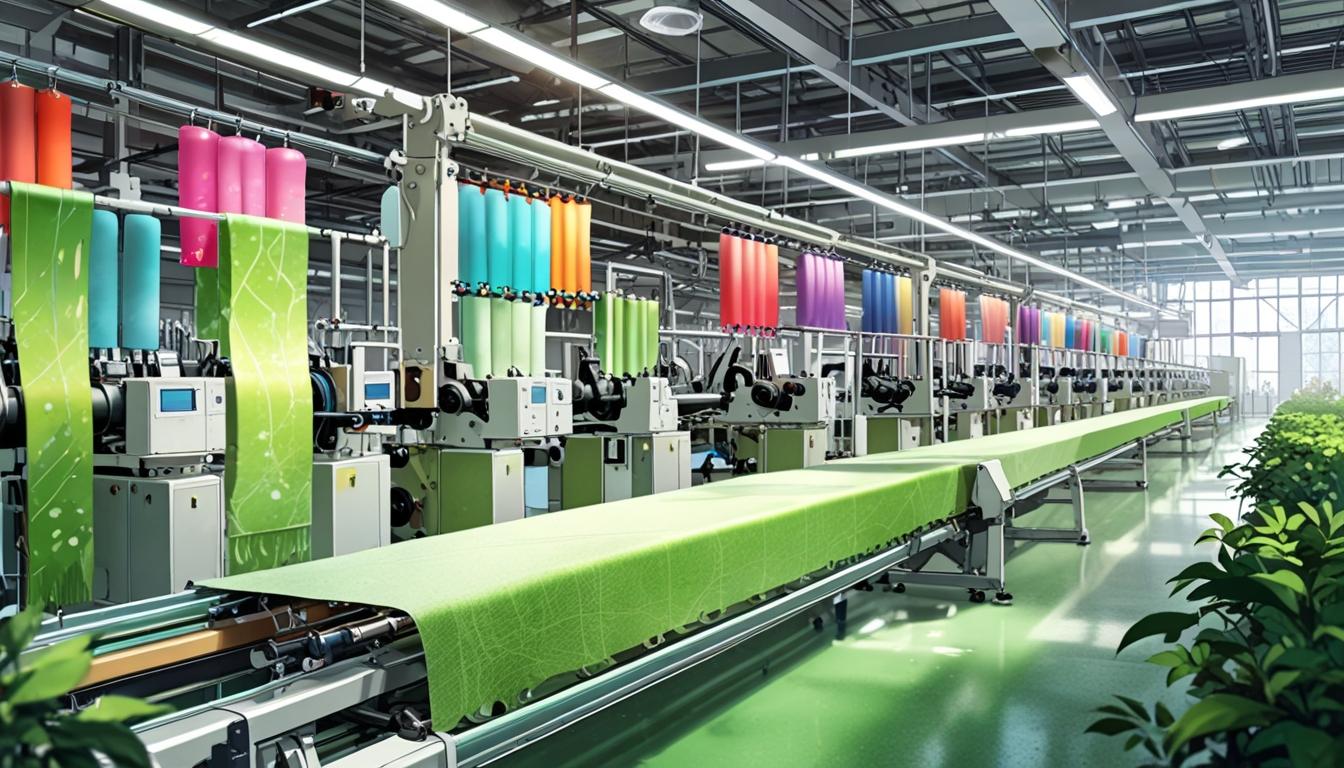Advancements in fabric technology are reshaping the design, production, and consumption of textiles, driven by sustainability, functionality, and consumer experience.
The textile and apparel industry is undergoing significant changes driven by advancements in fabric technology, which are reshaping the design, production, and consumption of textiles globally. According to experts Milind K, Marketing Manager at Prophecy Market Insights, and Santosh Bhul, Content Lead, the innovations are being propelled by a rising demand for sustainability, enhanced functionality, and improved consumer experiences.
Fabric technology refers to the development of new materials and processes aimed at enhancing the functionality, performance, and sustainability of textiles. This evolving field combines insights from various disciplines, including engineering and material science, to create fabrics that are not only more comfortable and durable but also environmentally friendly. The market for artificial intelligence (AI) in textiles is projected to reach a valuation of USD 22.5 billion by 2035, growing at a compound annual growth rate (CAGR) of 24.8%, with an estimated market size of USD 3.0 billion in 2024.
One of the critical impacts of AI on fabric technology is its ability to reduce waste, improve manufacturing efficiency, and facilitate personalized design. This technological evolution allows businesses to respond more effectively to market demands and trends while enhancing sustainability practices. AI-driven quality control, which leverages machine learning algorithms, is enabling producers to identify errors quickly, thereby improving accuracy and efficiency in textile production.
The necessity for innovation in fabric technology is underscored by the global textile industry’s significant contribution to environmental issues. Traditional fabric production methods are often detrimental to ecosystems, involving chemical-heavy dyeing processes and water-intensive agriculture, particularly in cotton farming. Innovations in fabric technology aim to address these challenges by providing sustainable alternatives. These include the development of biodegradable fibers, waterless dyeing technologies, and textiles derived from plant-based materials.
Recent advancements in fabric technology are witnessing the emergence of breathable fabrics, smart textiles, and sustainable manufacturing practices. Breathable fabrics, enhanced by advanced weaving techniques and micro-ventilation patterns, offer improved comfort for wearers under demanding conditions. Smart fabrics, which incorporate technology to monitor health metrics and adapt to different environments, herald a new age for wearable technology.
Several leading companies in the textile industry are pushing the boundaries of fabric technology. Directa Plus has introduced Graphene Plus, a graphene-enhanced fabric known for its remarkable flexibility and strength. The partnership between Stella McCartney and Adidas aims to innovate further in sustainable fabric technology, emphasizing biodegradable and plant-based materials. Under Armour has developed smart clothing, such as the UA Record Equipped line, designed with sensors to track wearers’ temperature and sweat levels. Moreover, Wrangler’s Indigo Dye Technology leverages lasers for denim production, significantly reducing water use during the dyeing process. Furthermore, Bolt Threads has created Mylo, a sustainable alternative to leather, produced from fungal mycelium.
Looking ahead, the potential for fabric technology innovation remains vast. Researchers are exploring the development of self-healing fabrics, which could automatically repair minor damages using advanced materials like nanoparticles. Additionally, 3D printing technology is being harnessed to produce customized textiles layer by layer, promoting sustainable production methods. The incorporation of AI and machine learning in fabric design is also on the rise, helping producers understand textile properties and consumer preferences better, aimed at minimizing waste and optimizing production efficiencies.
As the textile industry moves towards more sustainable and intelligent solutions, the ongoing innovations in fabric technology are expected to enhance performance, contribute to eco-friendly practices, and offer consumers a new range of smart textile options. The transformation signifies not only a shift in manufacturing practices but also a response to the growing global demands for sustainability and quality in the textile sector.
Source: Noah Wire Services




